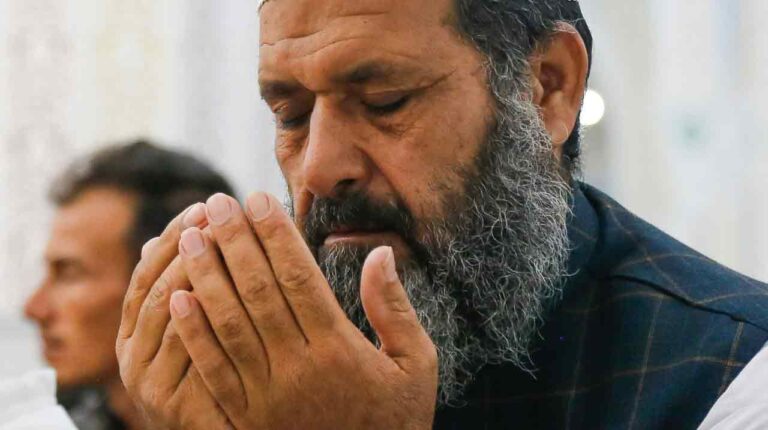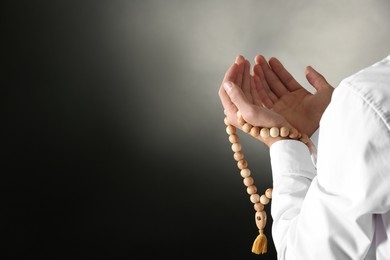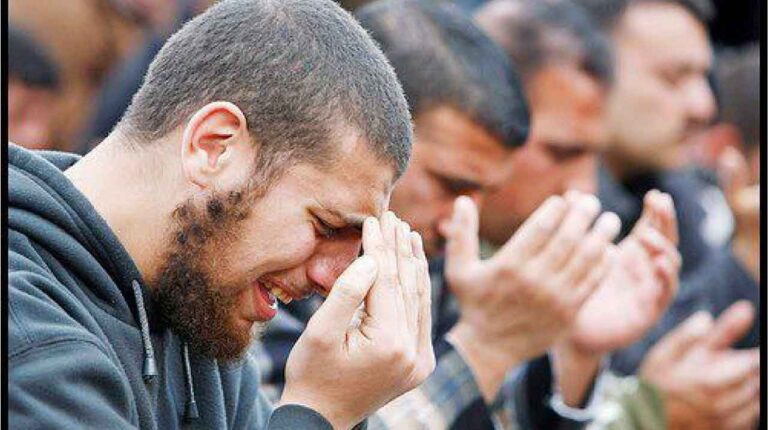Introduction:
In the sacred month of Ramadan, Muslims around the world embark on a spiritual journey marked by fasting, prayer, and reflection. However, amidst the observance of this pillar of Islam, questions often arise regarding marital relationships and obligations. In this collection of responses from esteemed Islamic scholars, we delve into various scenarios concerning husband-wife dynamics during Ramadan, exploring topics such as fasting, prayer, intimacy, and mutual responsibilities. Through the guidance offered by these scholars, individuals grappling with marital dilemmas find clarity on navigating their relationships within the context of this blessed month.

Guidance on Marital Relations During Ramadan
Kissing One’s Spouse while Fasting
The question of whether a husband and wife can engage in kissing during the fast is a common inquiry among Muslims, especially during the sacred month of Ramadan. While the act of kissing may seem innocuous, its permissibility within the confines of fasting warrants examination.
In Islam, the general principle is that actions are permissible unless explicitly prohibited. Scholars have debated the permissibility of kissing during fasting, with varying opinions offered based on interpretations of Islamic texts.
According to Sheikh Sayyed Sabiq, a renowned Islamic scholar, kissing one’s spouse while fasting is allowed, as evidenced by the actions of the Prophet Muhammad (peace be upon him) himself. However, it is advisable to exercise caution, especially during the daylight hours of Ramadan, to avoid any actions that may lead to the nullification of the fast, such as engaging in sexual intercourse.
The permissibility of kissing is contingent upon whether it incites one’s desires. If kissing leads to further actions that invalidate the fast or arouses sexual desires, it is discouraged. However, if the kiss is devoid of such intentions and does not lead to further actions, it is considered permissible.
In another perspective provided by Sheikh Ahmad Kutty, a senior Islamic scholar, the permissibility of kissing during fasting is emphasized, citing examples from the Prophet’s actions. Nevertheless, he underscores the importance of exercising self-control and restraint. Individuals should assess their own ability to resist temptation and refrain from actions that may compromise the sanctity of the fast.
Ultimately, the decision to engage in kissing while fasting rests with the individual, who must prioritize the preservation of their spiritual state and adherence to Islamic principles.
Hugging One’s Spouse While Fasting
Similarly, the question of whether a husband and wife can hug during fasting arises within the context of maintaining piety and observance during Ramadan.
Islamic scholars concur that hugging one’s spouse while fasting is generally permissible, as evidenced by the actions of the Prophet Muhammad (peace be upon him). However, caution is advised, especially for individuals who may struggle with controlling their desires.
Sheikh Ahmad Kutty emphasizes the importance of exercising restraint and refraining from actions that may lead to the nullification of the fast. While hugging in itself does not invalidate the fast, individuals must be mindful of their intentions and ability to control their desires.
The discrepancy in rulings regarding kissing and hugging reflects the nuanced nature of Islamic jurisprudence and the importance of individual discretion. Muslims are encouraged to prioritize the sanctity of their fasts and uphold the principles of modesty and self-restraint in all actions, including interactions with their spouses.
Ultimately, the goal of fasting in Ramadan is to attain spiritual purification and closeness to Allah. As such, individuals should approach intimate relations with mindfulness and reverence, seeking to enhance their spiritual journey during this blessed month.
Having Intercourse with One’s Spouse during Ramadan
In the context of observing Ramadan, questions often arise regarding the permissibility of engaging in intimate relations with one’s spouse. Islamic teachings provide clear guidelines regarding the boundaries of fasting and the allowance for marital relations after breaking the fast.
According to Sheikh Ahmad Kutty, a prominent Islamic scholar, Muslims are permitted to have intercourse with their spouses after breaking the fast and until the arrival of dawn. This allowance is supported by a Quranic verse (Al-Baqarah 2:187), which emphasizes the permissibility of intimate relations during the night of fasting.
However, it is essential to recognize the prohibition of engaging in intercourse while fasting during the daylight hours. Muslims are admonished to abstain from such activities to uphold the sanctity of the fast and fulfill the obligations of Ramadan.
Forcing One’s Wife to Make Love during the Day of Ramadan
Islamic jurisprudence prohibits individuals from nullifying their fasts or compelling others to do so without justification. Dr. Husam al-Din Ibn Musa `Afana, a respected Islamic scholar, addresses the issue of forcing one’s wife to engage in sexual intercourse during daylight hours in Ramadan.
According to majority opinion among jurists from various schools of thought, if a husband forces his wife to break her fast by engaging in intercourse, the wife is not considered sinful. However, she is required to make up for the invalidated fast at a later date. Additionally, the husband bears the responsibility of repenting and expiating for the transgression.
While some scholars advocate for leniency in cases of coercion, others maintain that the fast remains valid for the wife under such circumstances. The concept of coercion is subject to interpretation, and opinions may vary among scholars.
Ultimately, the overarching principle in Islamic law is to uphold the sanctity of fasting and protect the rights and dignity of individuals within marital relationships. Muslims are encouraged to seek knowledge and guidance from qualified scholars to navigate complex issues in accordance with Islamic teachings.
Sexual Intercourse while Observing Optional Fast
Inquiries often arise regarding the consequences of engaging in sexual intercourse while observing optional fasts. Dr. Wael Shihab, a distinguished scholar, clarifies that if someone breaks an optional fast due to sexual intercourse, no expiation or makeup is required. However, it’s advisable to abstain from breaking optional fasts to reap their spiritual benefits fully.
Having Premarital Relationship during Ramadan
Sheikh Ahmad Kutty emphatically prohibits premarital sexual relations, emphasizing that such actions are sinful regardless of the time, including during Ramadan. He underscores the importance of repentance and utilizing Ramadan as an opportunity for spiritual growth and forgiveness.
Husband and Wife Sleeping in One Bed While Fasting
Addressing concerns about fasting spouses sharing a bed, Sheikh Ahmad Kutty assures that there’s no issue with such arrangements as long as they avoid sexual relations during fasting hours. He references the Prophet’s guidance, emphasizing the importance of self-control to maintain the sanctity of the fast.
Menstruating Wife Sleeping with Fasting Husband
Sheikh Ahmad Kutty reassures that it’s permissible for a menstruating wife to sleep beside her fasting husband, provided they refrain from sexual intercourse during fasting hours. He emphasizes Islam’s leniency regarding physical contact during menstruation and highlights the importance of maintaining boundaries in marital relations while fasting.
Not Cooking for Husband Who Doesn’t Fast
Sheikh Ahmad Kutty advises that you are not obligated to cook or serve food for your husband during Ramadan if he chooses not to fast without a valid reason. By doing so, you would be inadvertently aiding in his sinful behavior.
Wife Not Fasting or Praying: Is She a Disbeliever?
Regarding your wife’s refusal to fast or pray, Sheikh Ahmad Kutty emphasizes the importance of genuine conviction in Islam. He suggests offering your wife the chance to understand and practice Islam sincerely, and if she refuses, you may consider parting ways amicably.
Taking Birth Control Pills in Ramadan
Sheikh Ahmad Kutty suggests discussing with your doctor the possibility of adjusting the timing of your birth control pills to after iftar (breaking the fast) or before sahur (pre-dawn meal) during Ramadan. Fasting during Ramadan is a fundamental obligation, and efforts should be made to ensure its observance unless there are valid health concerns.
Conclusion:
In conclusion, navigating marital relations during Ramadan involves a delicate balance between fulfilling religious obligations and maintaining the sanctity of intimate relationships. While Islamic teachings provide guidance on permissible actions, individuals must exercise mindfulness, self-control, and respect for the sacredness of the fast. By prioritizing spiritual growth, adherence to Islamic principles, and mutual respect within marital relationships, Muslims can approach Ramadan with reverence and deepen their connection to Allah.






